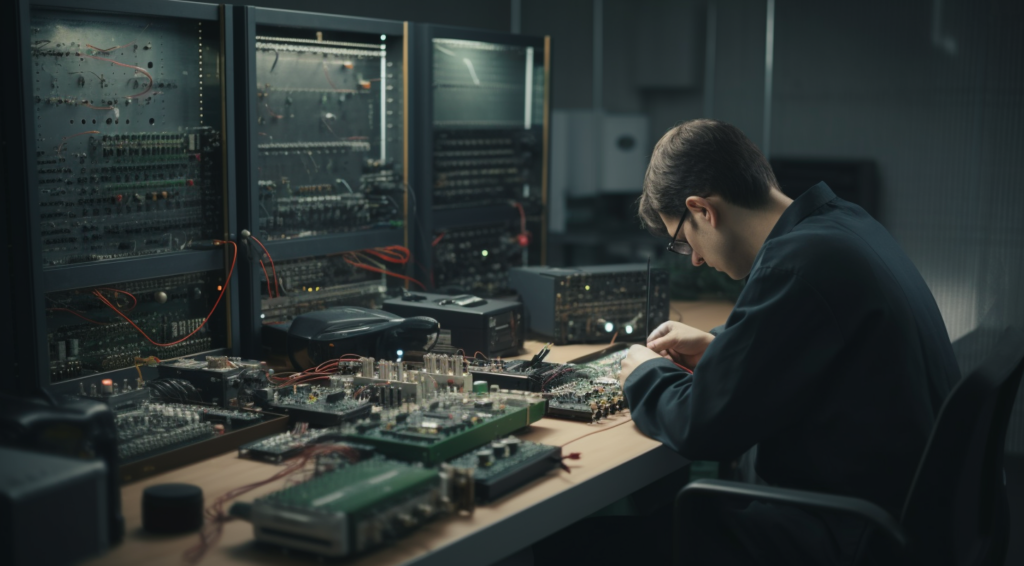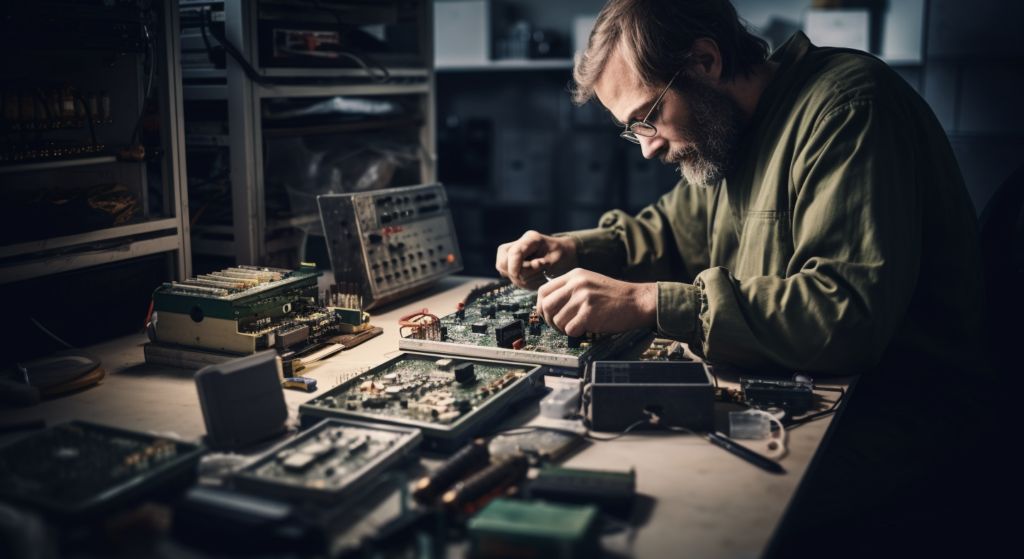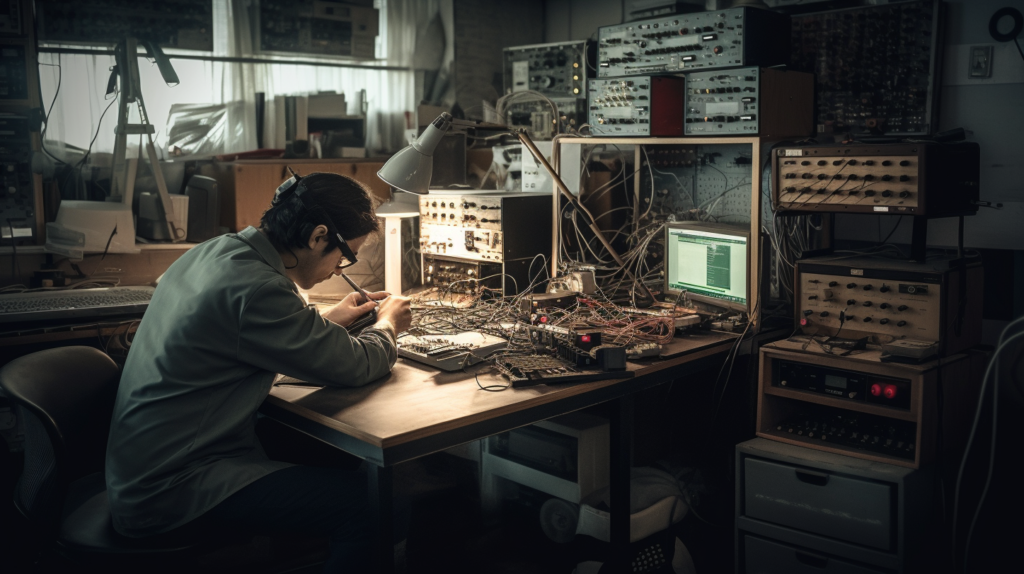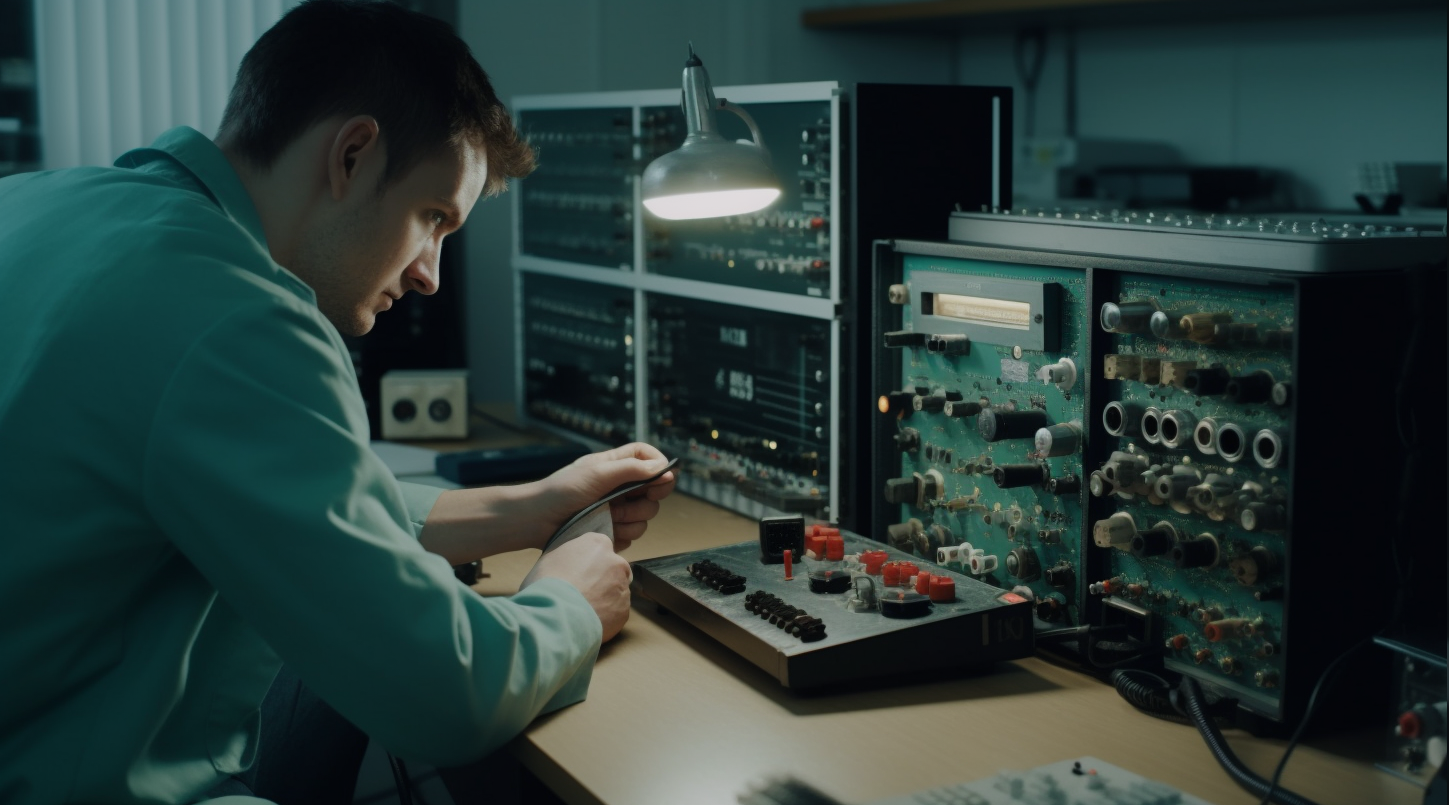In an age where wireless signals are everywhere, isolating your electronic devices for testing is more important than ever. A Faraday box provides a secure, RF-free environment to accurately test, measure, and troubleshoot without interference. It’s a vital tool for engineers, developers, and quality assurance teams working with any device that transmits or receives a signal.
At Ramsey Electronics, our Faraday Cage Box is built specifically for hands-on testing in environments that demand reliable shielding and usability.

Featured Snippet Answer
A Faraday box is used in electronics testing to block all external radio frequency signals, allowing developers and engineers to evaluate devices without interference. It supports wireless module testing, security validation, and electromagnetic compatibility (EMC) assessments.
Why Is RF Isolation Important in Testing?
RF (radio frequency) interference can cause fluctuations in test results, false positives, or unintended device behavior. A Faraday box creates a stable, shielded environment that ensures:
- Repeatable test conditions
- Isolation of signal sources
- Clean transmission data
- Protection from environmental RF noise
Whether you’re developing a new IoT device or testing a smartphone’s GPS capabilities, shielding is crucial for test accuracy.

Top Use Cases for a Faraday Box in Labs and R&D
1. Wireless Module Testing
Faraday boxes allow for precise evaluation of:
- Bluetooth
- Wi-Fi
- 5G
- NFC
- GPS
By blocking all outside interference, you can measure transmission strength, scan response, and frequency stability with full control.
2. Security Validation and Hacking Resistance
Companies use Faraday enclosures to test whether their devices can be hacked or tracked through wireless signals. A Faraday box ensures there’s no leak—intentional or otherwise—during evaluation.
3. Electromagnetic Compatibility (EMC)
EMC testing checks how well a device resists and emits RF noise. Inside a Faraday box, you can measure emissions precisely and comply with FCC, CE, or MIL-STD regulations.
4. Signal Leakage Tests
By placing a transmitting device inside a Ramsey Electronics Faraday box and monitoring external frequencies, engineers can ensure no unintended signals escape, an important step for defense and medical tech.
5. Product Development and Debugging
During early-stage development, engineers can simulate “RF dead zones” to troubleshoot wireless components and isolate bugs.
6. Customer Support and Quality Assurance
Support teams and QA engineers can verify product claims, debug signal issues, and document test results inside an isolated box without external contamination.

How Ramsey Electronics Improves Test Usability
The Ramsey Faraday Cage Box is engineered for both shielding and usability:
- Integrated glove ports for safe manipulation
- Large front viewing window
- Optional shielded power & USB pass-throughs
- Durable aluminum construction
- Broadband RF performance from 100 MHz to 6+ GHz
This means you can interact with your device in real time—no need to compromise accessibility for shielding.
Types of Devices Commonly Tested
- Smartphones and smartwatches
- Wireless routers and IoT devices
- Wearable tech
- Embedded modules (Wi-Fi/Bluetooth chips)
- Drones and unmanned vehicles
- Military communication gear
- GPS trackers
These are just a few of the device types that benefit from full shielding during testing or transport.
Test Without Compromise
In many environments, ambient RF pollution can ruin test data or expose devices to unintended communication. With a professionally built Faraday box, you get:
- Lab-grade RF control
- Portable enclosure options
- Compliance with industry standards
- Real-time access and monitoring
Whether you’re in research, production, or product testing, a Faraday box isn’t a luxury—it’s a necessity.
Testing wireless electronics?
Learn more about Ramsey Electronics’ Faraday Cage Box and its full specs.
Looking for a comparison between shielding options? Check out our previous post on Faraday cages vs Faraday boxes.
For product support or bulk orders, reach out via our contact page. Our team is ready to assist.

